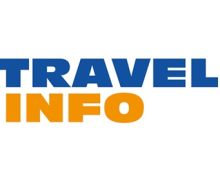FROM June 1, International Airlines
Group (IAG) will raise ADMs for the
unauthorised use of agency cards or
virtual cards as a form of payment for
airfares. The penalty will be 5% of the
unauthorised payment amount. IAG is
the holding company for British Airways,
Iberia and Aer Lingus.
Following recent amendments to Iata
Resolution 890, agent credit cards
are now accepted as a BSP form of
payment subject to airline approval.
IAG’s ADM policy applies to cards
issued in an agency’s name, in the
name of a person permitted to act on
behalf of the agent or in the name of
the agent’s officer, partner or employee.
The policy also applies to virtual cards
or alternative payment methods such
as eNett or Wex.
The airline release explains that the
handling of agency cards comes at an
increased cost to the airline compared
with payment methods such
as BSP.
The group said it was
looking into implementing
a permissions process for
agent cards in line with Iata
TIP implementation.
Exceptions where agency
cards may be used include
internal bookings for travel
agency employees, charges
processed through airline
contact centres and ancillary
service purchases where
BSP is not available as a
payment option.
Dinesh Naidoo, group
operations director of
SWG, says they have been
using eNett cards for the
last two years and that
this development affects
their workflow process.
He adds that SWG is offselling
carriers that have
barred virtual cards where
possible, following similar
announcements from
Cathay Pacific, Lufthansa,
Qatar and SWISS.
“We find this decision
surprising as airlines take
on far greater risk when
processing a client’s card.
eNett is one of the most
secure debit cards in the
market and charge-backs
do not apply to them.
Additionally, an increase
in BSP cash ticket sales
also substantially impacts
an agency’s cash flow due
to higher Iata guarantee
requirements.”
Asked about the new ADM
policy, a BA spokesperson
told TNW that the airline had
never allowed general usage
of agent cards and that the
latest release had been
issued in response to an
increase in agent questions
about its policies.













